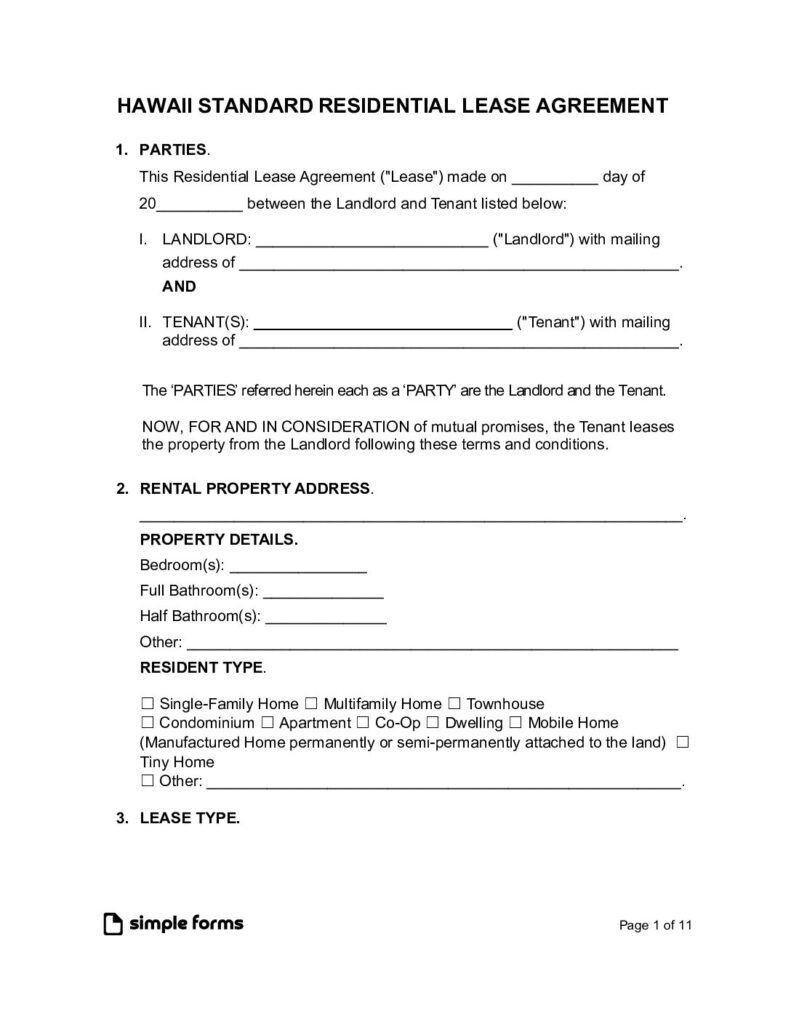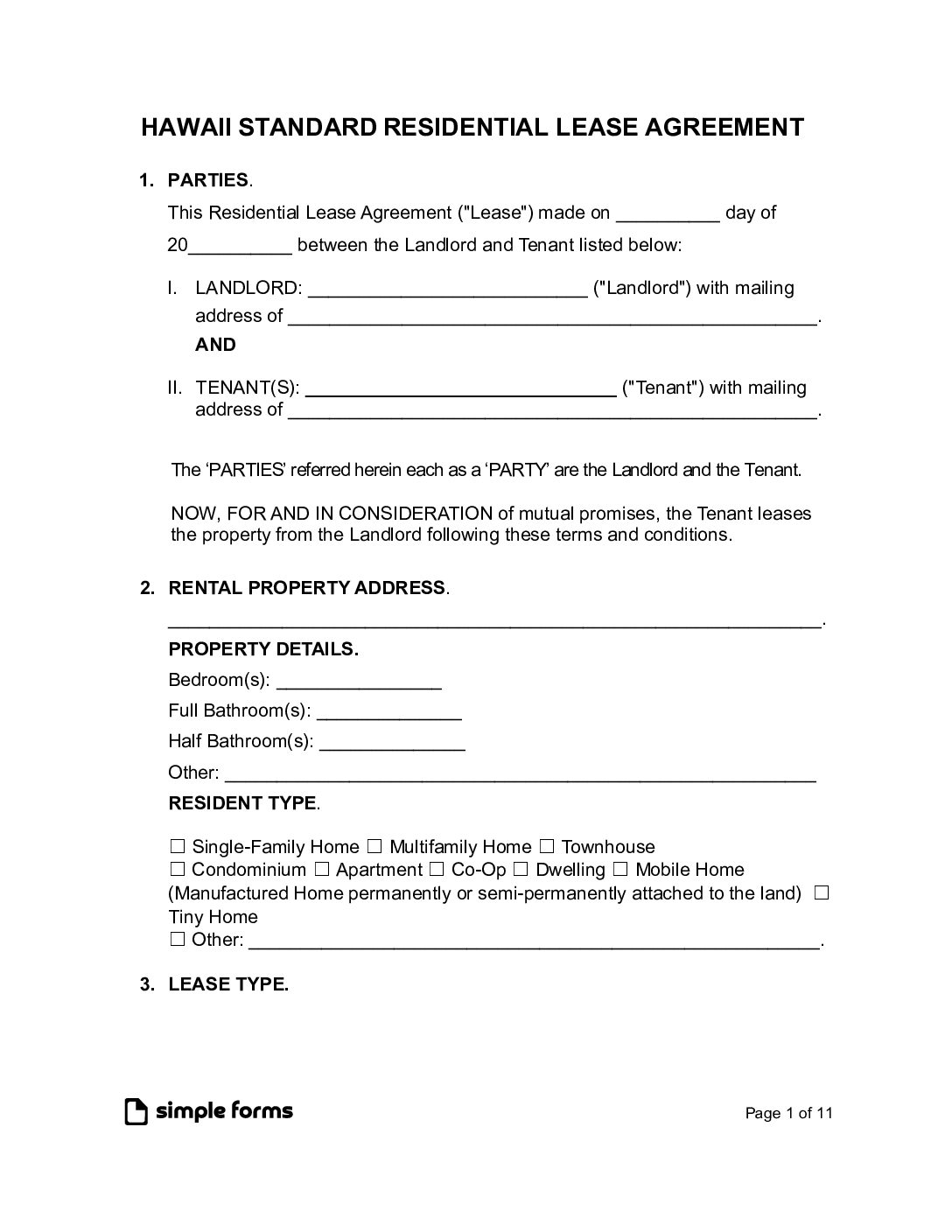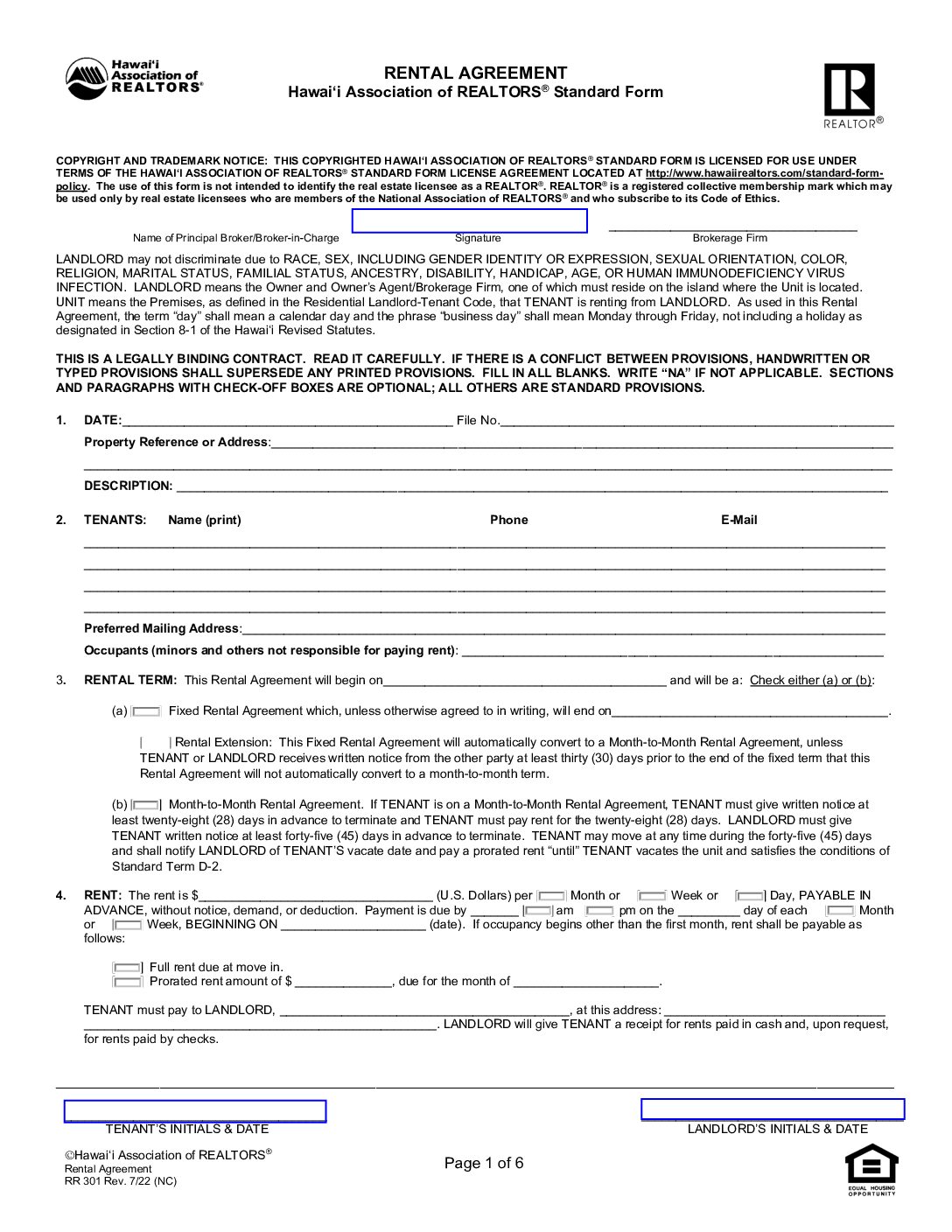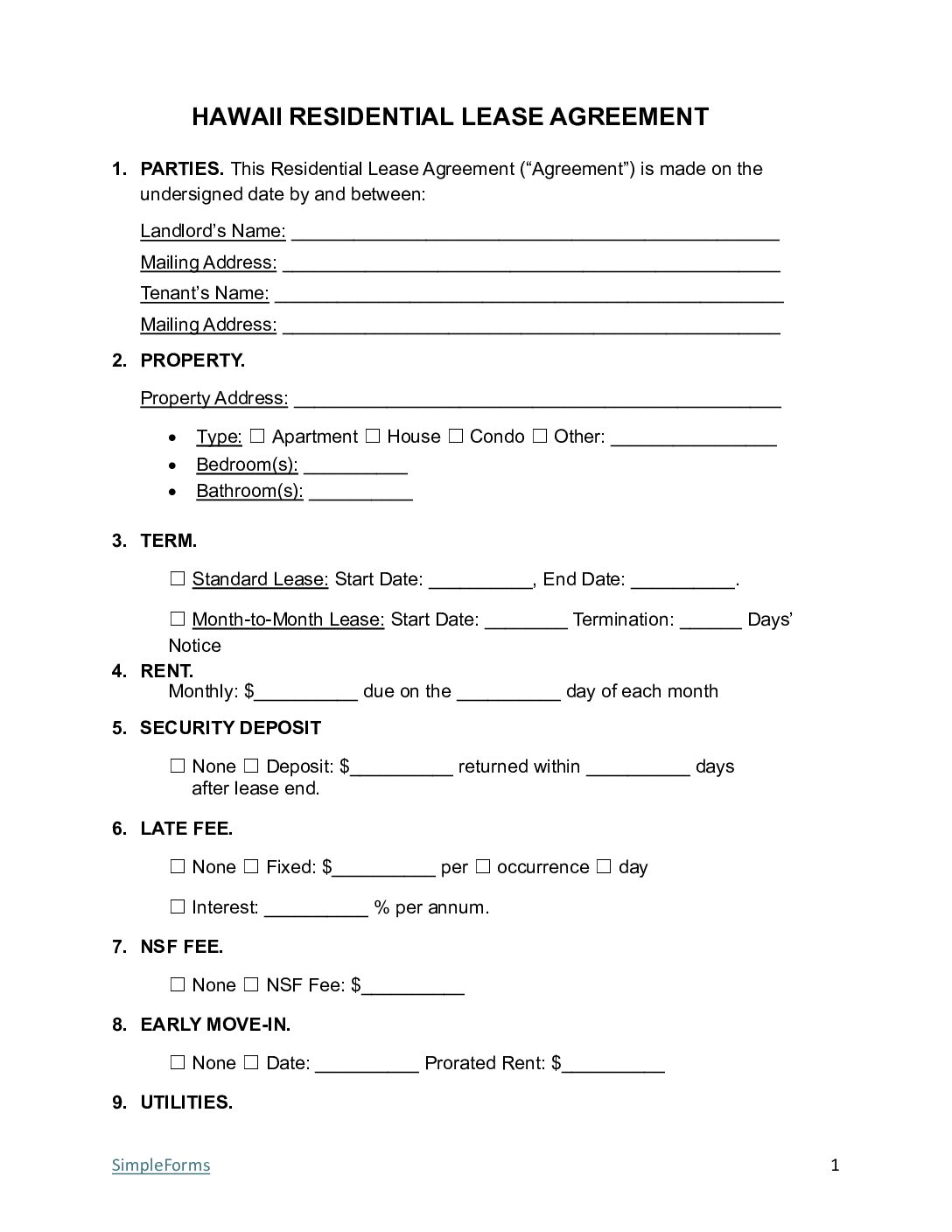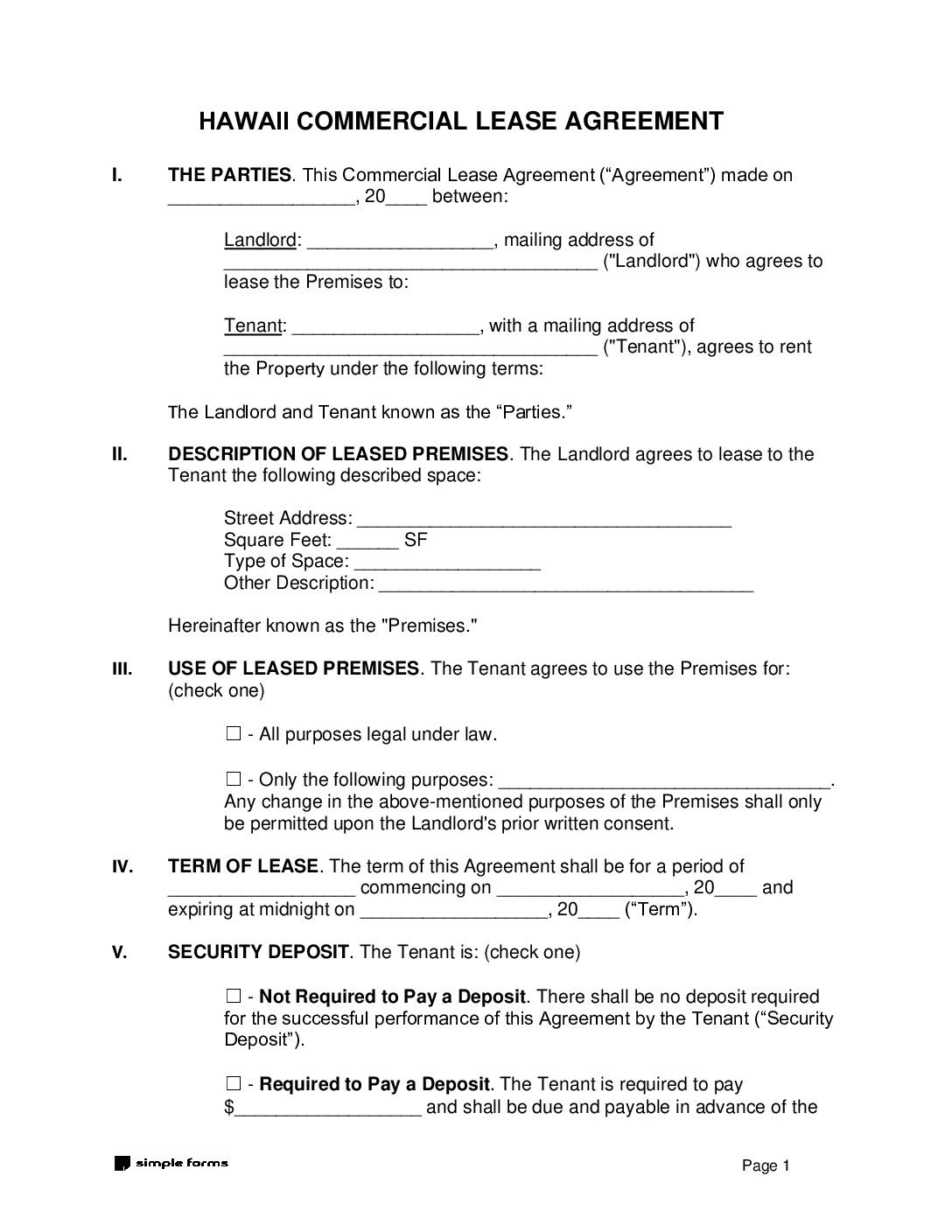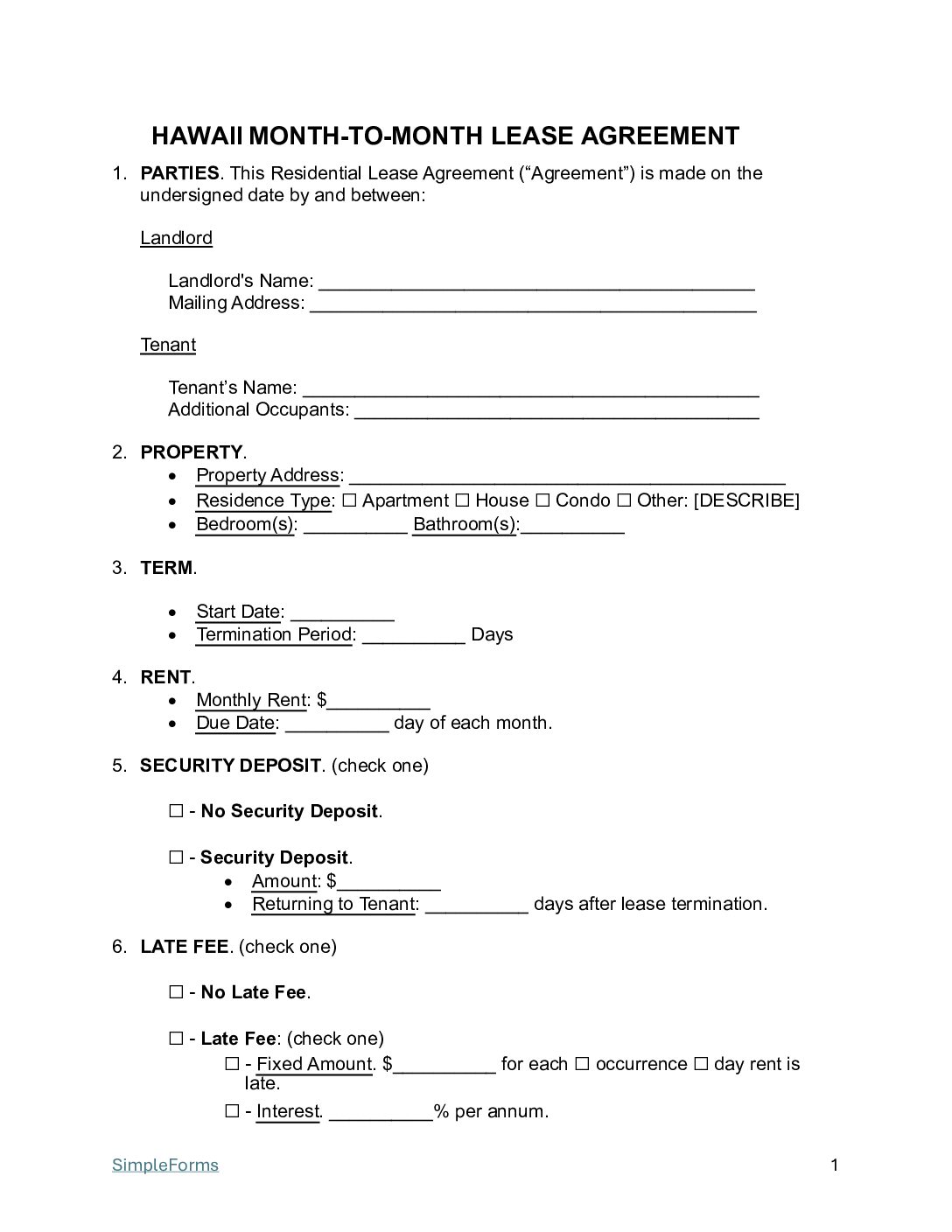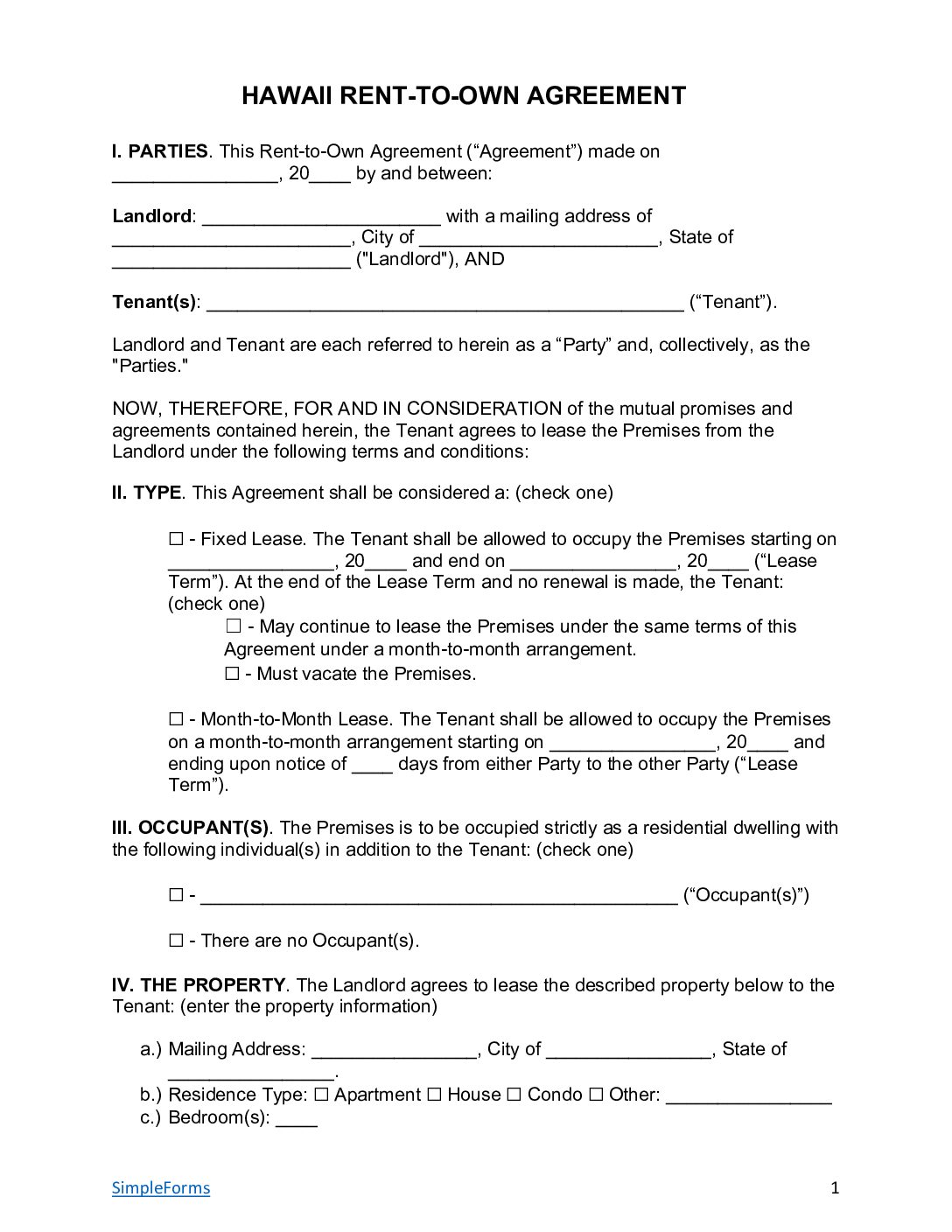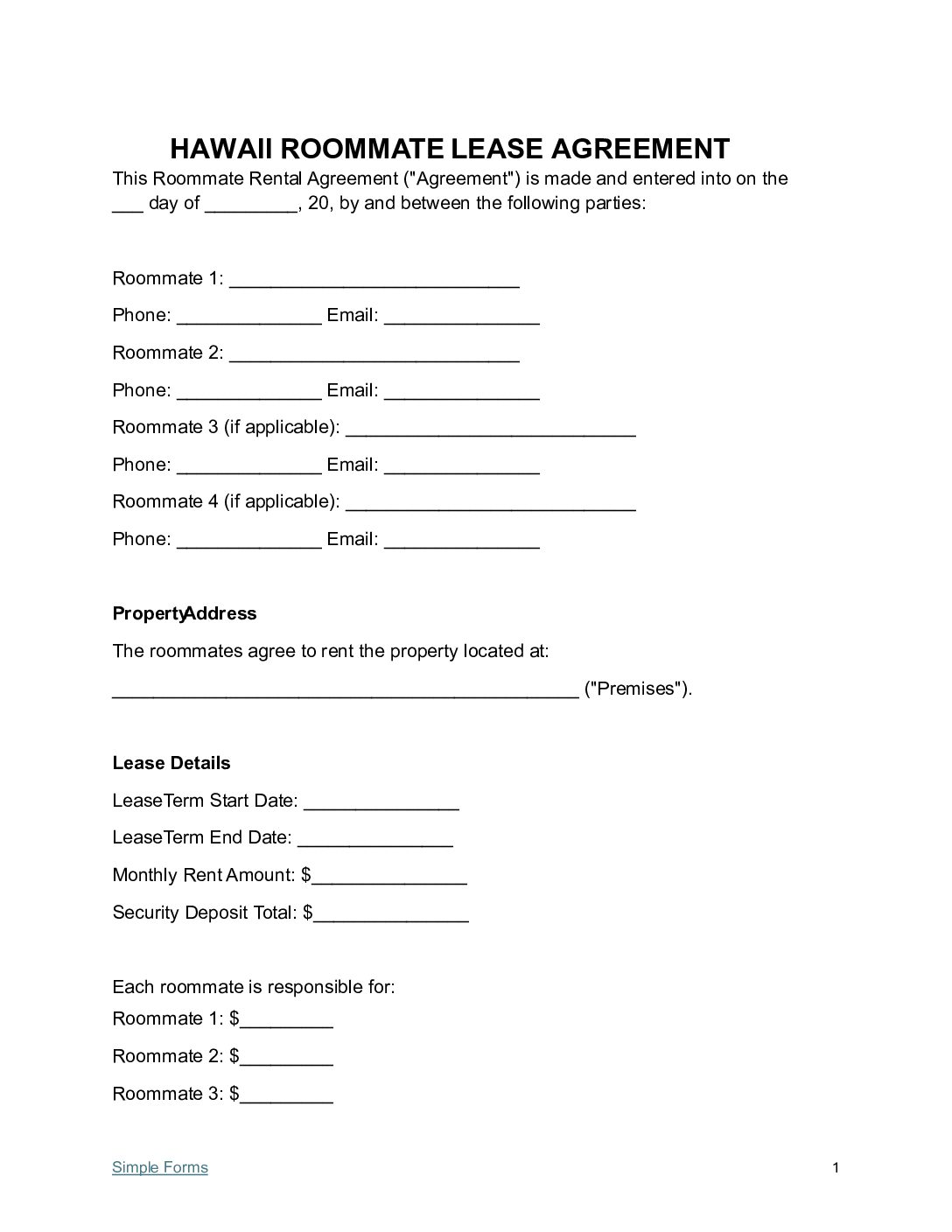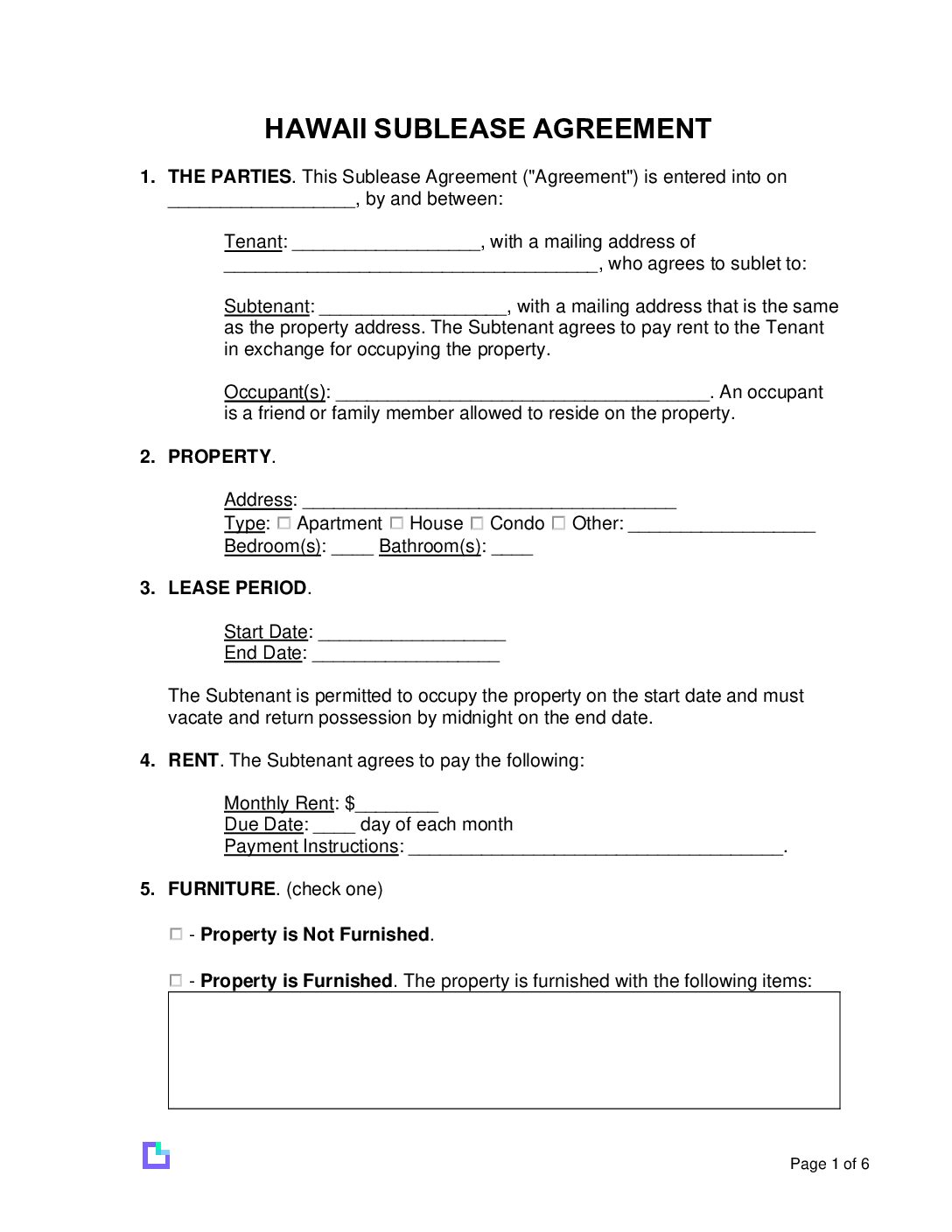By Type (7)
Honolulu, HI Realtors Rental Lease Agreement PDF
What the form covers?
This document includes the following laws regarding the relationship between the landlord and tenant in Hawaii:
- Hawaii Residential Landlord-Tenant Code
- Security Deposit Law
- Lease Termination
- Landlord’s Access to the Property
- Rent Due Date plus Late Fees
- Eviction Procedures
- Property Maintenance
- Tenant’s Rights
- Rent Control
- Discrimination Protections
- Habitability Standards
- Utilities and Services
Hawaii Residential Landlord-Tenant Code
Summary (Haw. Rev. Stat. § 521↗): The Hawaii Landlord-Tenant Code governs the landlord-tenant relationship.
Security Deposit Law
Summary (Haw. Rev. Stat. § 521-44↗): Landlords can charge tenants a security deposit but must return it (minus any deductions) within 14 days after the tenant moves out.
- 14 Days – Timeframe for landlords to return the deposit.
- Deductions must be itemized and provided to the tenant.
- Normal wear and tear cannot be deducted from the deposit.
- Tenants can pursue legal action for up to double the deposit if not returned properly.
Lease Termination
Summary (Haw. Rev. Stat. § 521-71↗): Both landlords and tenants can terminate a lease under these conditions:
- Landlord’s Ability to Terminate
- 5-day notice for failure to pay rent.
- 10-day notice to cure a lease violation.
- Tenant’s Ability to Terminate
- Tenants may terminate for domestic violence with proper documentation (court records/police report)..
- Provide 28 days’ notice to terminate a month-to-month lease.
Landlord’s Access to Property
Due Dates / Late Fees
- Grace Period – Hawaii law does not mandate the rent due dates; these are subject to the written lease agreement. Landlords can issue a 5-day notice to quit if payment is not received on the due date.
- NSF Fee – $30 per bounced rent check.
Eviction Procedures
Property Maintenance
Summary (Haw. Rev. Stat. § 521-42↗): Landlords are required to keep rental properties in a habitable condition and make necessary repairs after receiving written notice from tenants.
- Tenants can terminate the lease and/or seek damages if repairs are not made within a reasonable time after notice.
Tenants who make repairs themselves are not legally entitled to deduct the cost from their rent payment.
Tenant’s Rights
Summary (Haw. Rev. Stat. § 521-41↗): Tenants in Hawaii have certain rights that are protected under state law, including the following:
- Right to Privacy – Tenants are entitled to privacy in their rental unit, and landlords must provide notice before entering.
- Right to a Habitable Home – Tenants can expect their rental unit to meet health and safety standards.
- Protection from Retaliation – Landlords cannot retaliate against tenants for exercising their rights, such as reporting code violations.
Rent Control
Summary Hawaii does not have statewide rent control laws. However, some counties may have their own regulations.
Discrimination Protections
Summary (Haw. Rev. Stat. § 368-1↗): Hawaii law prohibits discrimination in housing based on race, color, religion, sex, national origin, disability, familial status, and sexual orientation.
- Filing Complaints – Tenants who believe they have been a victim of discrimination can file a complaint with the Hawaii Civil Rights Commission.
Habitability Standards
Summary (Haw. Rev. Stat. § 521-42↗): Landlords must make sure that rental properties are habitable and meet basic living standards, including:
- Functional plumbing, heating, and electrical systems.
- Proper sanitation and safety measures to prevent infestations.
Tenants can request repairs and are entitled to a response from the landlord within a reasonable timeframe.
Utilities and Services
Summary Hawaii law outlines the obligations regarding utilities in rental agreements. Landlords are responsible for maintaining proper services while tenants are responsible for paying for internet and cable (optional).
- Water and Electricity – Unless specified otherwise in the lease, landlords must provide these services.
- Internet and Cable – The tenants are responsible for paying for these services unless included in the rental agreement.
Required Disclose Forms
- General Excise Tax Number – Landlords must provide this number to tenants for low-income tax credit applications. (Search: Click “Search Tax Licenses,” enter the landlord’s name, and look for a number starting with “GE” followed by 12 characters.)
- Move-in Condition Report – Before signing an agreement, landlords must give tenants a report on the property’s condition, including furnishings and appliances.
- Lead-Based Paint Disclosure Form – If the property was built before 1978, landlords must provide a the lead disclosure and an EPA pamphlet.
- Landlord’s Name and Address – Landlords must disclose who is authorized to access the property.
Sample Hawaii Rental Lease Agreement
Hawaii Lease Agreement Checklist
✅ Before Signing Checklist
Tenant Preparation:
✅ After Signing Checklist
First Week Actions:
